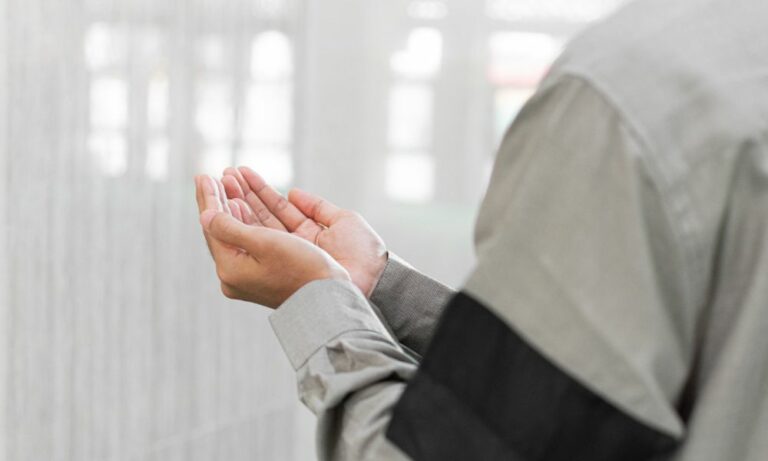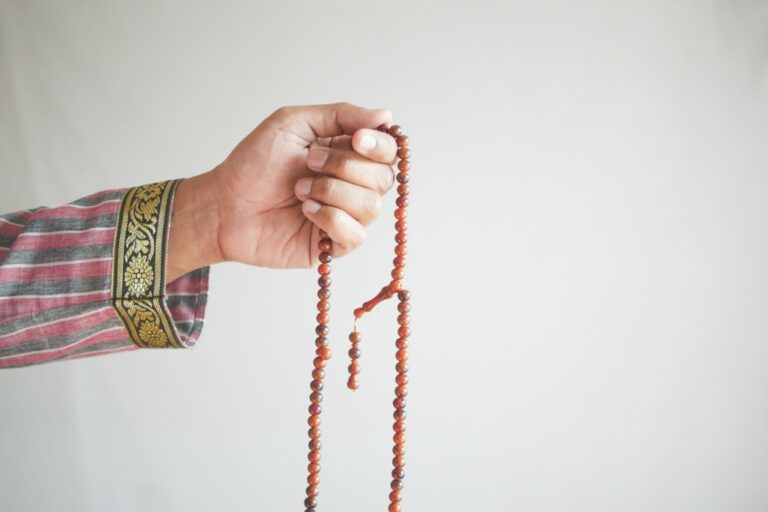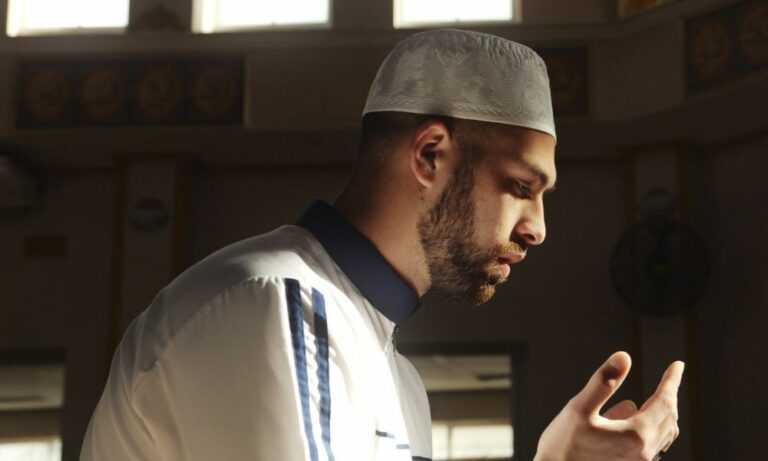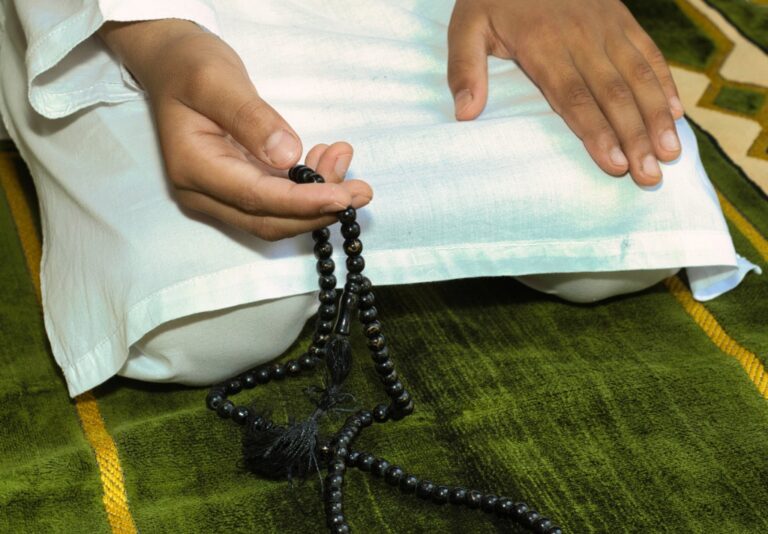Learn Everything About Attahiyat Lillahi Wa Salawatu (Full Dua For Salat / Namaz)
Do you need help to correctly learn and recite the significant “Attahiyat Lillahi Wa Salawatu…” during your daily prayers? This special Dua is a crucial part of Islamic worship, spoken at specific points during prayer such as in the final rak’ah.
Our comprehensive guide will break down its meaning, significance, and correct pronunciation to enhance your spiritual experience. Let’s dive in and deepen our connection with Allah SWT through this powerful prayer!
Understanding Attahiyat Lillahi Wa Salawatu
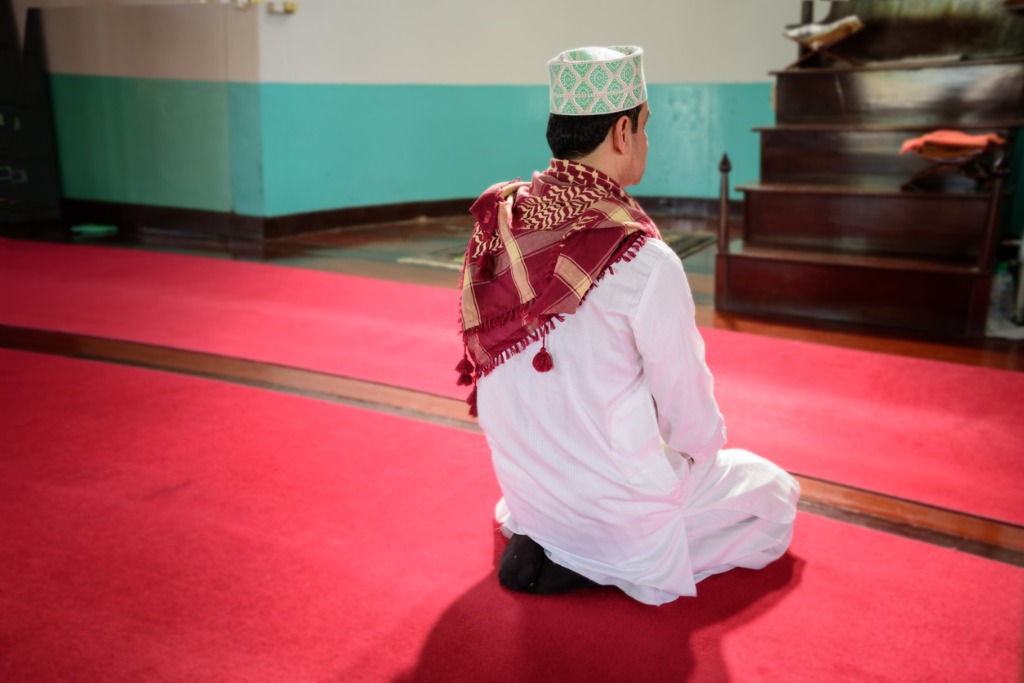

This section delves into the profound meaning and significance of “Attahiyat Lillahi Wa Salawatu…”, both in its original Arabic and English translation. Understanding the origin, significance and exact recitation of this powerful Dua is critical to improving your prayer experience and connecting you deeper to Allah SWT and Prophet Muhammad (PBUH).
This investigation will assist in clarifying when and how to correctly recite this vital part of our daily Salah or Namaz.
Definition and Importance
“Attahiyat Lillahi Wa Salawatu” is a Dua in prayer. It is recited by Muslims all over the world. This Dua is spoken in the prayers’ second and last rakats.
Being able to say this Dua well adds to our worship in each prayer we make.
The Arabic Version
” التَّحِيَّاتُ لِلَّهِ وَالصَّلَوَاتُ وَالطَّيِّبَاتُ السَّلاَمُ عَلَيْكَ أَيُّهَا النَّبِيُّ وَرَحْمَةُ اللَّهِ وَبَرَكَاتُهُ السَّلاَمُ عَلَيْنَا وَعَلَى عِبَادِ اللَّهِ الصَّالِحِينَ أَشْهَدُ أَنْ لاَ إِلَهَ إِلاَّ اللَّهُ وَأَشْهَدُ أَنَّ مُحَمَّدًا عَبْدُهُ وَرَسُولُهُ
English Transliteration
At-tahiyyatu lillahi was-salawatu wat-tayyibat, as-salamu ‘alaika ayyuhan-Nabiyyu wa rahmatAllahi wa baraktuhu. As-salamu ‘alaina wa ‘ala ‘ibad illahis-salihin, ashahdu an la illaha ill-Allah wa ashhadu anna Muhammadan ‘abduhu wa rasuluhu
English Translation
Allah’s compliments, prayers, and pure words are due to Allah. Peace be upon you, O Prophet, and the mercy of Allah (SWT) and his blessings. Peace be upon us and upon the righteous slaves of Allah (SWT). I bear witness that none has the right to be worshipped except Allah, and I bear witness that Muhammad is His slave and Messenger.
Reference: Sunan an-Nasa’i 1164
In this Dua, we praise Allah and send blessings on the Prophet Muhammad PBUH while also reciting the testimony of faith.
The English translation is only provided for clarification; you must pray this Dua in Arabic because it is prohibited to use other language(s) during prayer.
- For the most accurate Athan and Prayer times, please click here
The Significance of Attahiyat in Prayer


In daily prayers, Attahiyat has a special place. Muslims recite it during the second and final rak’ah of their prayer. This Dua is one way to get closer to Allah SWT. It allows us to express our love and respect for our Lord.
We also send peace to Prophet Muhammad PBUH as part of the Dua. This act demonstrates that we accept faith in Allah and His Messenger, Muhammad, in the same way a slave is bound by love and duty to his master.
The Arabic words used are heartfelt and have profound meaning in terms of how we perceive God’s greatness and loving care for us all. The significance of Attahiyat is found not only in its words but also when it is said during prayer – toward the end when our hearts are most open to feeling close to Allah SWT.
The practice of saying Attahiyat contributes to developing a strong relationship with Allah based on trust, reverence, gratitude, obedience, and complete reliance on Him alone while seeking His mercy at every turn in life’s journey.
- Download Muslim Sadiq app, and enjoy all top-notch features for everyday activities!
How to Recite Attahiyat in Salat/Namaz


Learn how to recite Attahiyat correctly in Salat/Namaz, focusing on correct pronunciation and knowing when to incorporate it during prayer.
Correct pronunciation
Pronouncing the Attahiyat Dua right is a crucial part of the prayer. Here are some tips to help you:
- Divide the Dua into small pieces. This will make each word easier for you to say.
- Learn the Arabic text of Attahiyat first. Arabic is the language it was first said in.
- Use apps or online Quran classes. They can assist you in hearing how each word should sound.
- If you can’t read Arabic yet, read the transliteration of Attahiyat.
- Every day, even if only for a few minutes, practice.
- It’s okay to make mistakes; you’ll improve with practice!
When to recite in the prayer
You have to recite the Attahiyat twice in your prayer (except for Fajr, in which you do it only once); the first part in which you recite it is called “First Tashahud,” and the second part in which you recite it is called the “Last Tashahud.”
In all the prayers, obligatory, sunnah, and nafl rakats, you must recite Attahiyat in the second and fourth rakats. Take, for example, the Duhr prayer:
In the Duhr prayer, you would recite it when rising from the second prostration in the second rakah, and once finished, you would stand up and continue your prayers. Then, recite it again in the last rakah after the second prostration.
However, in the Witr prayer, it is recommended to pray it with one single tashahud, which means you do not have to sit for the first tashahud and only have to recite it in the last rakah. For instance, if you pray five or three rakahs of witr, you will only recite Attahiyat in the last rakah.
- Read Al Quran along with interpretation in the easiest way possible by clicking here
Conclusion
Attahiyat is a unique Dua that is recited during the Salah, in the second and last rakah. In this Dua, you praise Allah and send blessings upon the Prophet PBUH, and then you say testimony of faith (Shahadah).
- Islamic holidays and important dates are listed here
FAQs
What is the importance of Attahiyat Lillahi Wa Salawatu in Salah?
Attahiyat Lillahi Wa Salawatu, recited during Tashahhud, is a vital part of Salah. It’s one of the obligatory acts in prayer as taught by Prophet Muhammad PBUH.
Are there different ways to say Attahiyat Lillahi wa Salawatu during Tashahhud in Prayer?
There is only one authentic prayer mentioned in the sahih hadith. That’s why there are no other ways.
Does knowing the English Meaning of Attaihytat help non-Arabic speakers benefit their prayer experience?
Surely! Understanding what you’re saying during Salah makes your connection with Allah SWT deeper, letting you become the more virtuous slave of Him.
When do we have to raise our index finger when reciting Attahiyat Dua?
While reciting this Dua, when you reach the part “Ashhadu Allah Ilaaha Illalahu…” you have to raise your index finger while keeping your fist on your lap.
تعلم كل شيء عن العطية لله والصلاة (الدعاء الكامل للصلاة / نماز)
هل تحتاج إلى مساعدة لتعلم وتلاوة آية "التحية لله والصلاة..." بشكل صحيح خلال صلواتك اليومية؟ يعد هذا الدعاء الخاص جزءًا مهمًا من العبادة الإسلامية، ويتم التحدث به في نقاط محددة أثناء الصلاة مثل الركعة الأخيرة. سوف يقوم دليلنا الشامل بتحليل معناها وأهميتها ونطقها الصحيح لتعزيز تجربتك الروحية. دعونا نتعمق ونعمق علاقتنا مع الله سبحانه وتعالى من خلال هذه الصلاة القوية!فهم العطية لله وصلواتك


التعريف والأهمية
"التحيات لله و الصلاة" هو دعاء في الصلاة. يتلوها المسلمون في جميع أنحاء العالم. يقال هذا الدعاء في الركعة الثانية والأخيرة من الصلاة. إن القدرة على قول هذا الدعاء بشكل جيد تضيف إلى عبادتنا في كل صلاة نقوم بها.النسخة العربية
» التَّحِيَّاتُ لِلَّهِ وَالصَّلَوَاتُ وَالطَّيِّبَاتُ السَّلاَمُ عَلَيْكَ أَيُّهَا النَّبِيُّ وَرَحْمَةُ اللَّهِ وَبَرَكَاتُهُ السَّلَامُ عَلَيْنَا وَعَلَى عِبادِ اللَّهِ الصَّلِحِينَ أَشْهَدُ أَنْ لاَ إِلَهَ إِلَّهُ وَ أَشْهَدُ أَنَّ مُحَمَّدًا عَبْدُهُ وَرَسُولُهُالترجمة الصوتية باللغة الإنجليزية
التحية لله و صلوات و طيبات، السلام عليكم أيوهان- نبييو و رحمة الله و بركاته. السلام علينا وعلى عبادة الله الصالحين، أشهد أن لا إله إلا الله وأشهد آنا محمد عبده ورسولهالترجمة الانجليزية
ولله الحمد والصلاة والكلمات الطيبة. السلام عليك أيها النبي ورحمة الله وبركاته. السلام علينا وعلى عباد الله الصالحين. وأشهد أن لا إله إلا الله، وأشهد أن محمداً عبده ورسوله. المرجع: سنن النسائي 1164في هذا الدعاء، نحمد الله ونصلي على النبي محمد صلى الله عليه وسلم ونقرأ أيضًا شهادة الإيمان. يتم توفير الترجمة الإنجليزية فقط للتوضيح؛ يجب عليك أن تصلي هذا الدعاء باللغة العربية لأنه ممنوع استخدام لغة (لغات) أخرى أثناء الصلاة.- للحصول على أدق أوقات الأذان والصلاة، يرجى النقر هنا
أهمية العطية في الصلاة
- قم بتنزيل تطبيق مسلم صادق، واستمتع بجميع الميزات المتميزة للأنشطة اليومية!
كيفية قراءة التحيات في الصلاة
النطق الصحيح
يعد نطق دعاء العطية بشكل صحيح جزءًا مهمًا من الصلاة. هذه بعض النصائح لمساعدتك:- قسّم الدعاء إلى قطع صغيرة. وهذا سيجعل من السهل عليك قول كل كلمة.
- تعلم النص العربي للعطيات أولا. اللغة العربية هي اللغة التي قيل بها أول مرة.
- استخدم التطبيقات أو دروس القرآن عبر الإنترنت. يمكنهم مساعدتك في سماع صوت كل كلمة.
- إذا كنت لا تستطيع قراءة اللغة العربية بعد، فاقرأ الترجمة الصوتية لكتاب التاحيات.
- تدرب كل يوم، حتى لو لبضع دقائق فقط.
- لا بأس في ارتكاب الأخطاء؛ سوف تتحسن مع الممارسة!
متى يقرأ في الصلاة
وعليك أن تقرأ التحيات مرتين في صلاتك (ما عدا الفجر فتفعله مرة واحدة فقط)؛ الجزء الأول الذي تقرأ فيه يسمى "التشهد الأول"، والجزء الثاني الذي تقرأ فيه يسمى "التشهد الأخير". وفي جميع الصلوات والفريضة والسنن والركعات النفلية عليك بقراءة التحيات في الركعة الثانية والرابعة. خذ على سبيل المثال صلاة الظهر: وفي صلاة الظهر تقرأها عند الرفع من السجدة الثانية في الركعة الثانية، فإذا انتهت قمت واستمرت في صلاتك. ثم يقرأها مرة أخرى في الركعة الأخيرة بعد السجدة الثانية. أما في صلاة الوتر فيستحب أن تصليها بتشهد واحد، أي لا يجب عليك الجلوس للتشهد الأول، بل تقرأها فقط في الركعة الأخيرة. على سبيل المثال، إذا صليت خمس أو ثلاث ركعات من الوتر، فإنك ستقرأ التحيات فقط في الركعة الأخيرة.- اقرأ القرآن مع التفسير بأسهل طريقة ممكنة بالضغط هنا
الاستنتاج
والتحيات دعاء فريد يقال في الصلاة في الركعة الثانية والأخيرة. في هذا الدعاء تحمد الله وتصلي على النبي صلى الله عليه وسلم، ثم تقول الشهادة.- الأعياد الإسلامية والتواريخ المهمة مدرجة هنا


